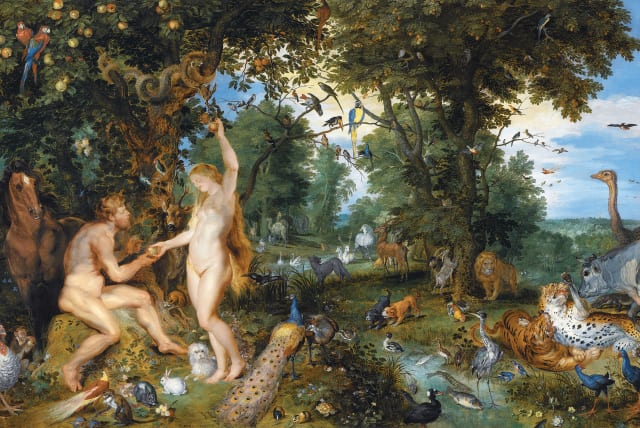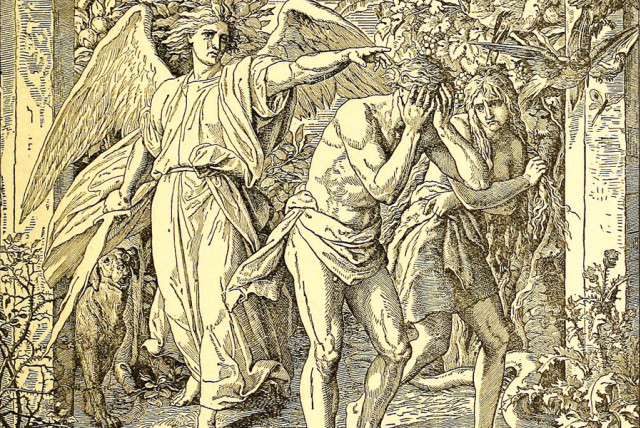Elul: Time to take accountability with your soul - opinion

Elul is the time to take make heshbon nefesh (accounting of the soul); a time for all of us, Adams and Eves, to pull ourselves up by the bootstraps and atone for our sins.
The Torah teaches that “it’s not good (lo tov) for man to be alone.” Why is that? What was it that God foresaw after He created Adam that was lo tov? What calamities did He portend that caused Him to take from Adam’s flesh and bone to fashion Eve?
And because He created Eve from Adam’s rib, was she meant to be his subordinate? Eve is not the devolution of a more divine Adam. God blew life into her just as he did into Adam when he fashioned him from the dirt.
Adam was first in time, but the chronology of Creation is not in itself an indication of preference or prominence – for if it were, God would prefer plants to humanity and darkness to light, and nothing in Genesis begs that conclusion.
“Let us make man in our image,” God said. In our “image” (tselem in Hebrew, akin to the word “shadow”). By creating man and woman God ensures that humanity – even though only a shadow of its Creator – more closely and completely represents Him than it would if the whole of humanity were male.
As but a finite shadow of the Divine, humanity is brittle. She stands at the center of an inescapable tug of war, the inclination toward good to her right; the inclination toward evil to her left. She yearns for a state of grace, for wholeness, to be more than the dust from which she came and to which she will return.
Humanity is female, male, neither, and both. We are, each of us, Adam and Eve – and like them, we have a tendency to forego accountability, to deny transgressions, to assign blame.
Adam blamed Eve for tempting him, and Eve blamed the serpent.
Elul: A time to admit you are wrong and repent
But Elul is not a time for projection or evasion.
It is a time for internal audit, a time for men and women alike to acknowledge wrongdoing, repent for the sins of the past, call on God’s 13 attributes and seek His mercy.
“The king is in the field,” and He isn’t looking just for men in kippot or women in wigs. He is looking for signs of communal awareness, empathy, and responsibility.
Adam and Eve ate from the Tree of Knowledge and saw that they were naked. They felt shame, sadness, and fear. They covered themselves up with fig leaves. They were expelled from Eden – but while the garden may be lost, redemption is not.
The “mother of all the living” and the man from whom she was formed retain the redemptive ability to procreate, to build communal bridges, to impart lessons in forgiveness instead of self-flagellation, to mold trauma into resilience, and to foster goodwill instead of malice.
Elul is the time to take make heshbon nefesh (accounting of the soul); a time for all of us, Adams and Eves, to pull ourselves up by the bootstraps, firmly plant our feet on the road of moral clarity, atone for our sins, resolve to do better, and seek out the compassion and clemency of the shechina, to know Her presence and kindness “to the thousandth generation.”
The writer is a family law attorney in Atlanta.
Jerusalem Post Store
`; document.getElementById("linkPremium").innerHTML = cont; var divWithLink = document.getElementById("premium-link"); if (divWithLink !== null && divWithLink !== 'undefined') { divWithLink.style.border = "solid 1px #cb0f3e"; divWithLink.style.textAlign = "center"; divWithLink.style.marginBottom = "15px"; divWithLink.style.marginTop = "15px"; divWithLink.style.width = "100%"; divWithLink.style.backgroundColor = "#122952"; divWithLink.style.color = "#ffffff"; divWithLink.style.lineHeight = "1.5"; } } (function (v, i) { });

